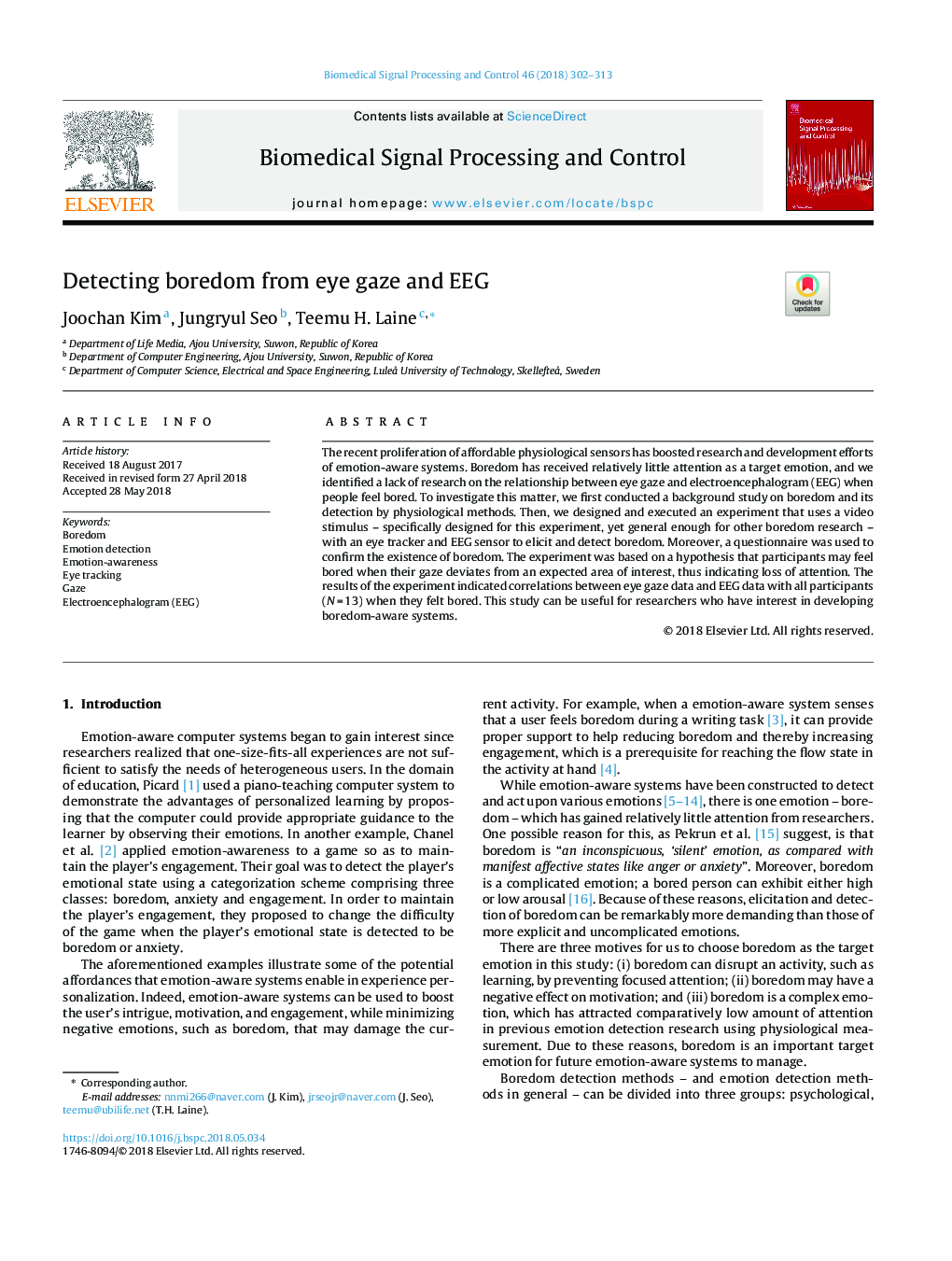| Article ID | Journal | Published Year | Pages | File Type |
|---|---|---|---|---|
| 6950683 | Biomedical Signal Processing and Control | 2018 | 12 Pages |
Abstract
The recent proliferation of affordable physiological sensors has boosted research and development efforts of emotion-aware systems. Boredom has received relatively little attention as a target emotion, and we identified a lack of research on the relationship between eye gaze and electroencephalogram (EEG) when people feel bored. To investigate this matter, we first conducted a background study on boredom and its detection by physiological methods. Then, we designed and executed an experiment that uses a video stimulus - specifically designed for this experiment, yet general enough for other boredom research - with an eye tracker and EEG sensor to elicit and detect boredom. Moreover, a questionnaire was used to confirm the existence of boredom. The experiment was based on a hypothesis that participants may feel bored when their gaze deviates from an expected area of interest, thus indicating loss of attention. The results of the experiment indicated correlations between eye gaze data and EEG data with all participants (Nâ¯=â¯13) when they felt bored. This study can be useful for researchers who have interest in developing boredom-aware systems.
Related Topics
Physical Sciences and Engineering
Computer Science
Signal Processing
Authors
Joochan Kim, Jungryul Seo, Teemu H. Laine,
